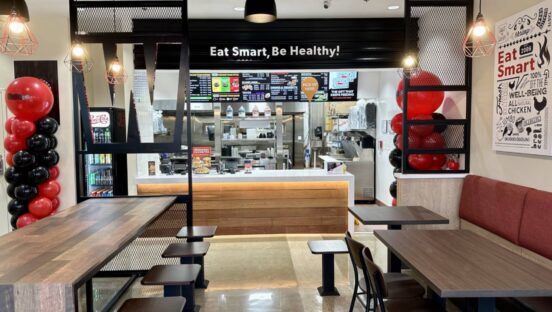While National Restaurant Association pundits are predicting an industry rebound by the end of 2009, most restaurant company leaders can’t afford to wait that long to take action. During this year’s People Report QSR Workforce Symposium in Dallas, Texas, several of these leaders shared what they’re doing now to thrive in their struggling markets—and how they plan to emerge even stronger when the anticipated recovery begins.
Surprisingly, none of the “Executive Shift” panel participants listed marketing or cost-cutting as their primary survival strategy. Instead, they talked about the need to connect with every consumer on a basic level, and drive traffic from within each restaurant’s four walls.
“More than ever, we need guests to advocate for our business,” said Nick Shepherd, CEO of Carlson Restaurants World-Wide (CCRW). “We need our employees to understand what our guests really want, and we need to hold them accountable for delivering it.”
Loyalty is earned one customer at a time, agreed Corner Bakery President and COO Jim Vinz. “We’ve really stressed the importance of saving the customer at the point of contact. Customers are a lot less forgiving than they used to be, and how we recover from mistakes is more important than ever.”
The panelists also agreed that their connection with customers is only as strong as their connection with employees. “Our job now is to engage guests like we never have before, on a one-on-one basis,” Shepherd told the audience. “And that means engaging our employees in the same way.”
CCRW, which has always been ahead of the curve in tracking guest satisfaction, now pays just as much attention to tracking employee satisfaction—through surveys, store visits and even a company blog.
To Taco Bueno CEO John Miller, improving customer engagement involves teaching his young labor pool to think differently. “How can we inspire our people to take ownership of their restaurants, to think of our guests as their guests?” His company’s new program, “Pleasing You Pleases Me,” answers this question. “If you can learn that true gratification comes from pleasing someone else—really knocking their socks off—then you’ll be able to take care of our guests, and give them the convenience and value they’re looking for.”
Empowerment also plays a critical role in employee engagement, Shepherd added. “Allowing people to make decisions in the workplace is something we should all be fascinated with,” he said. “The days of doing everything from a central location are over. Our job is to help people make sensible decisions by educating them on what our guests are looking for.”
In spite of their overall optimism, each panelist acknowledged a key barrier to employee engagement: the economic insecurity felt by most, if not all, restaurant industry employees.
“We’ve got a lot of young employees who have never been through a recession,” said Vinz. “So they need a lot of reassurance that they’re going to come out of this with their jobs intact.
For Miller, that reassurance has taken the form of “intelligent cuts”.
“Our team at the top is secure. …we’re not looking for the next shiny penny out there, and that adds to the feeling of safety for all of our employees. But we did freeze salaries this year,” Miller said.
To compensate for the flat pay rates, Taco Bueno now offers other benefits to corporate employees—like a four-day workweek, and ultra-casual dress codes. In addition, the company consciously avoided cutting charitable activities and community outreach. “We don’t want people to lose pride in the company,” Miller said.
“We have to do what we need to do to increase sales and improve margins, but we also have to be clear about the business philosophies that drive what we do,” Shepherd added. “We’ve also dialed up our recognition programs, and we’re dealing more swiftly with under-performance, so employees can see the fairness of our actions.”
Along with the challenges, the down economy has provided some unique opportunities for these leaders, especially in terms of the expanded labor pool.
“We’ve seen a higher degree of involuntary turnover than we have in the past,” Vinz claimed. “Managers have more options, so they don’t have to put up with bad performance.”
More importantly, however, Vinz has seen an uptick in employees looking to grow within Corner Bakery, rather than looking for opportunities elsewhere. “We’ve spent a lot of time fine-tuning our training programs to help people understand the development and career opportunities they have with us.”
Vinz also reminded the audience that the best way to survive this economy is to keep doing the simple things that always work. “When you treat employees right,” he said, “they will live the message you want to get to your guests. There’s no better advertisement than that.”
—By Donna Goldwasser





